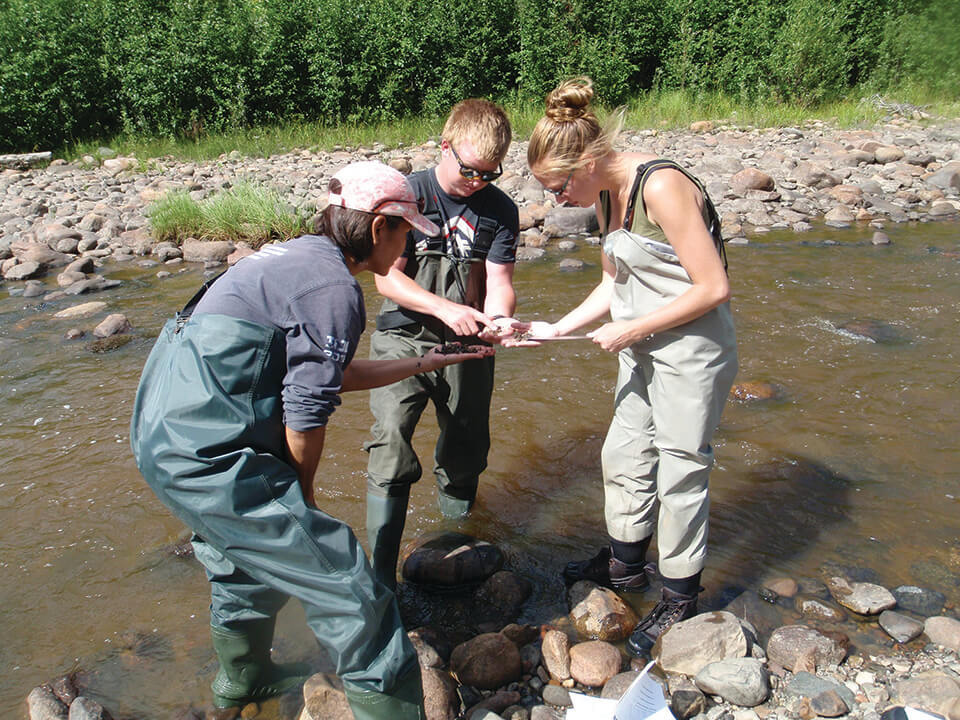The Canadian Rivers Institute is celebrating 15 years of achievements in aquatic research, in time for World Rivers Day on September 25th.
Founded at the University of New Brunswick (UNB) in 2001, the CRI has grown into a network of 22 science directors and their multi-disciplinary research teams housed at 14 universities and institutions across Canada and abroad. A Canadian success story, the CRI has become an international leader in developing solutions to the growing challenges facing the world’s rivers and estuaries, and in training the next generation of aquatic scientists.
“As our report today demonstrates, at the CRI we are breaking new ground in applied science across disciplines to find answers to the important questions being asked today about the world’s rivers. Whether it’s a government seeking to develop regulations, or industry looking to develop better management processes, every one of our projects is seeking a solution to a vital question that affects people and wildlife,” said Director Dr. Michael van den Heuvel, professor of Biology and past Canada Research Chair in Watershed Ecological Integrity at the University of Prince Edward Island.
Among the issues related to the health of the world’s rivers that CRI researchers are tackling, the group has examined how to plan for replacement or removal of aging hydro-electric dams; pulp and paper mill effluent discharges; how Arctic freshwater ecosystems are responding to climate change; and how multiple human activities are affecting watersheds.
To date, the CRI science directors and associates have mentored more than 450 students in disciplines including biology, chemical engineering, civil engineering, environmental management, geology, and policy.
CRI’s science directors have secured a Natural Sciences and Engineering Research Council grant of more than $1 million for stipends to students participating in professional development programming, as well as millions of dollars for applied aquatic research and science facilities.
Among the CRI’s plans for the next 15 years:
• Addressing the pressing issue of dam renewals by transferring expertise and knowledge to systems around the globe;
• Ensuring the protection and conservation of wild Atlantic salmon;
• Continued global leadership in biodiversity research and monitoring in the circumpolar Arctic;
• State-of-the-art training of at least 1,500 more aquatic science experts to meet growing global demands for water professionals;
• Developing further cutting-edge biomonitoring tools and incorporating them into assessments of river health.
A summary of the CRI’s achievements has been highlighted in a report available at http://canadianriversinstitute.com/cri/15-years-of-impact











